北师大版(2019)必修第三册 Unit 9 Learning Lesson 3 The Secrets of Your Memory 课件(共27张PPT)
文档属性
| 名称 | 北师大版(2019)必修第三册 Unit 9 Learning Lesson 3 The Secrets of Your Memory 课件(共27张PPT) |
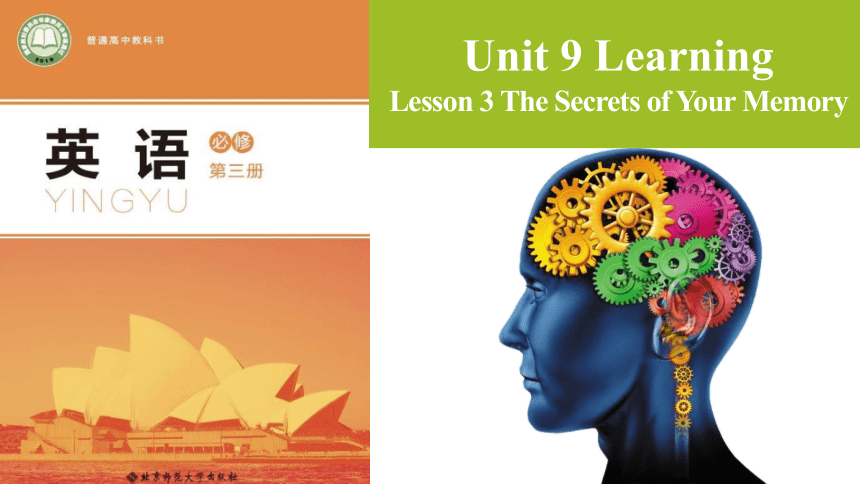
|
|
| 格式 | pptx | ||
| 文件大小 | 20.1MB | ||
| 资源类型 | 教案 | ||
| 版本资源 | 北师大版(2019) | ||
| 科目 | 英语 | ||
| 更新时间 | 2024-03-12 13:53:59 | ||
图片预览

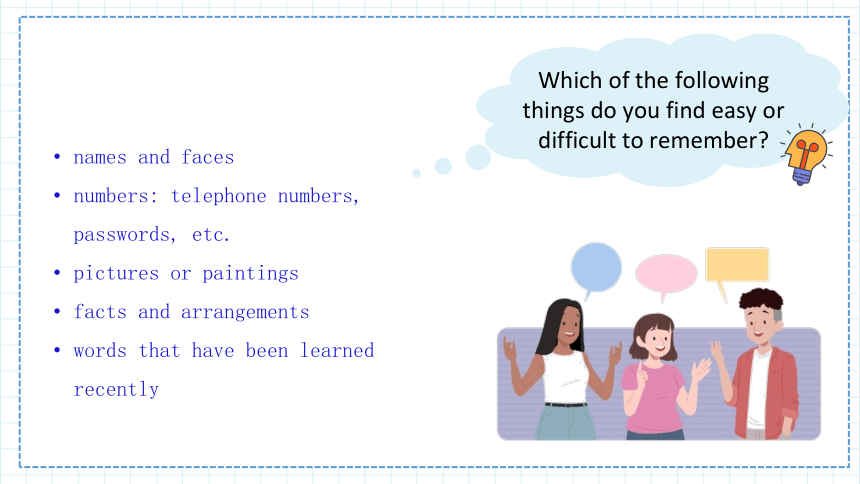
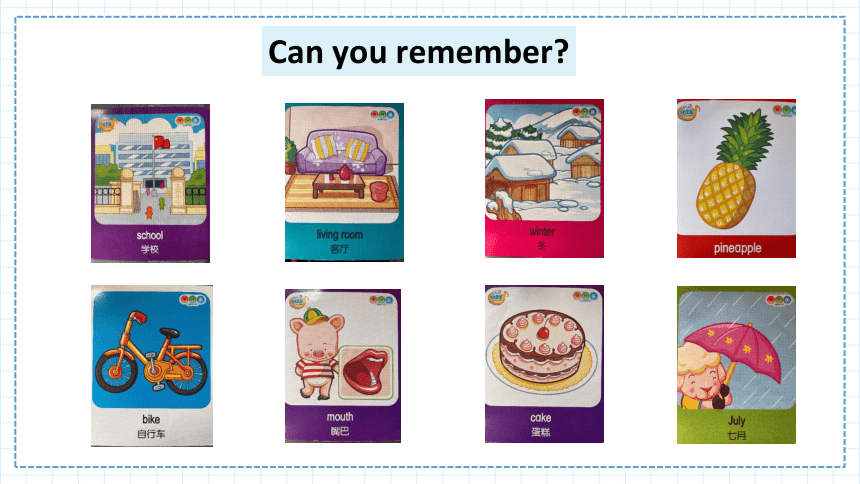
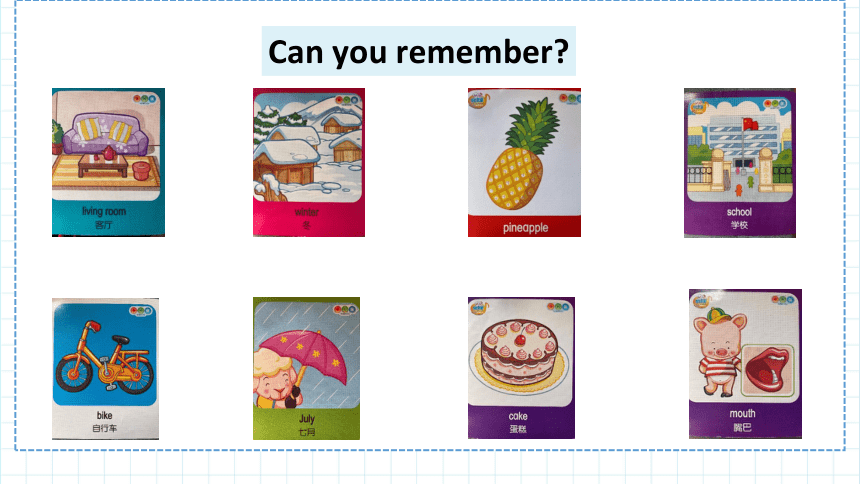
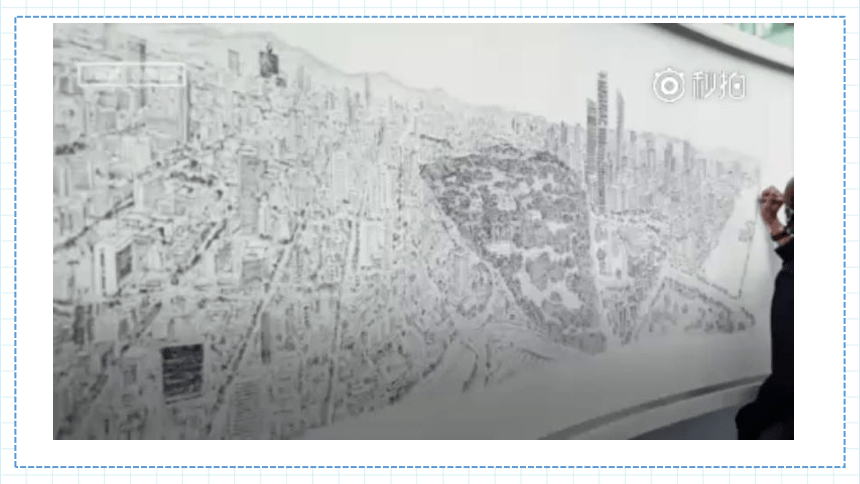
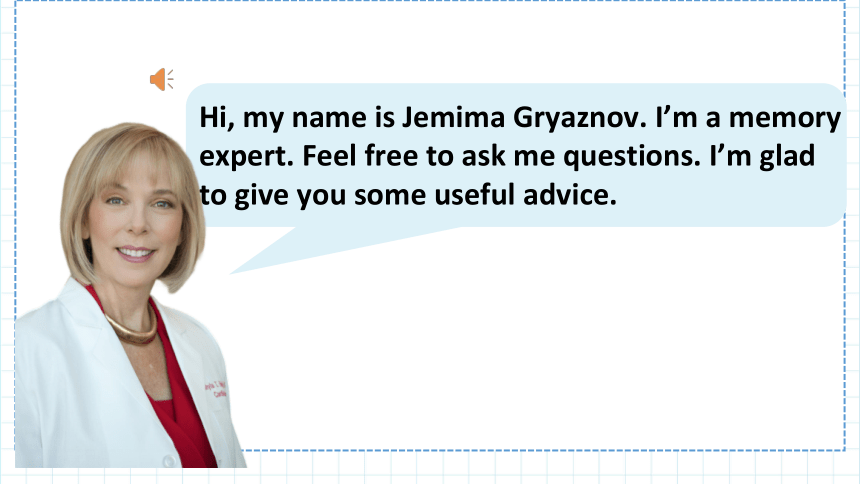
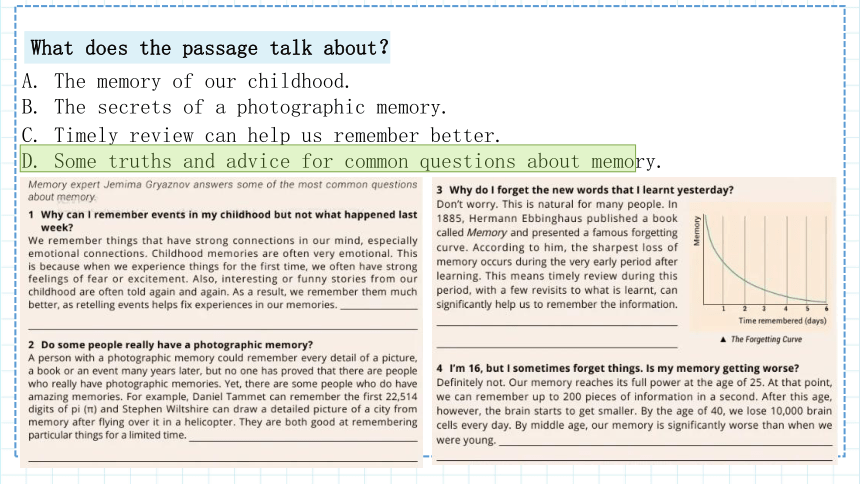
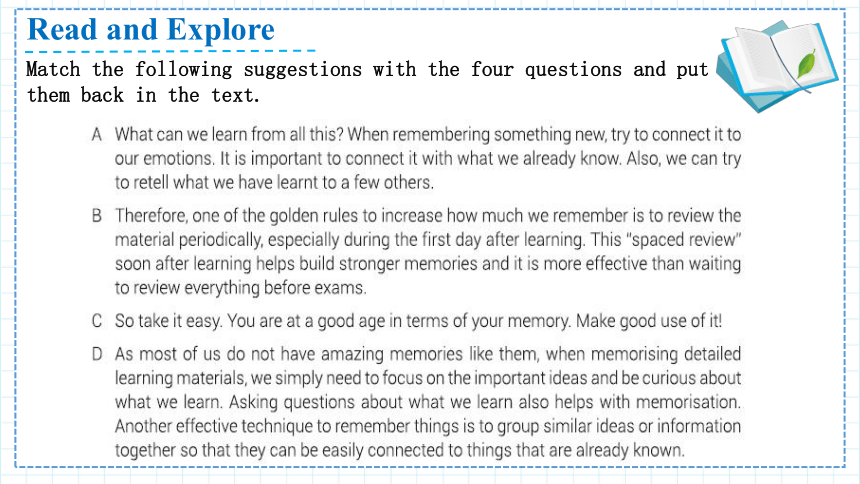
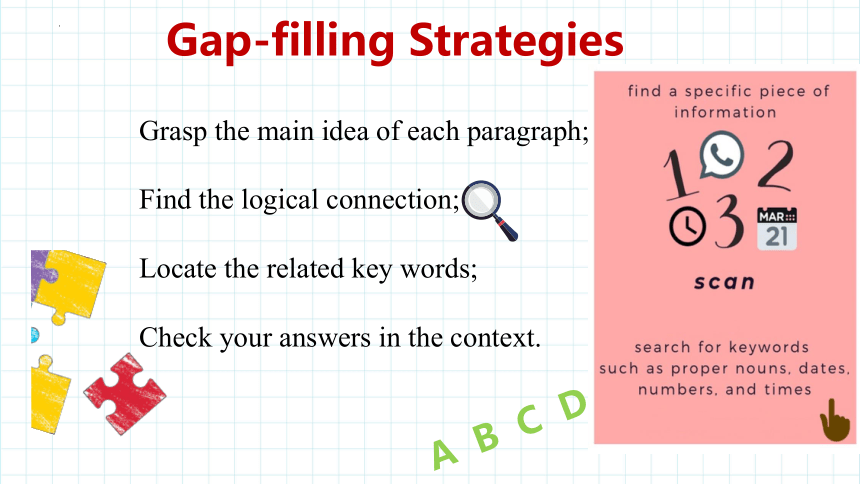
文档简介
(共27张PPT)
Unit 9 Learning
Lesson 3 The Secrets of Your Memory
Which of the following things do you find easy or difficult to remember
Tel: 13752634594
David
names and faces
numbers: telephone numbers, passwords, etc.
pictures or paintings
facts and arrangements
words that have been learned recently
[图片]
Can you remember
[图片]
Can you remember
[图片]
Hi, my name is Jemima Gryaznov. I’m a memory expert. Feel free to ask me questions. I’m glad to give you some useful advice.
What does the passage talk about?
A. The memory of our childhood.
B. The secrets of a photographic memory.
C. Timely review can help us remember better.
D. Some truths and advice for common questions about memory.
Read and Explore
Match the following suggestions with the four questions and put them back in the text.
Gap-filling Strategies
A B C D
Grasp the main idea of each paragraph;
Find the logical connection;
Locate the related key words;
Check your answers in the context.
Let’s try the gap-filling strategy!
A. What can we learn from all this When remembering something new, try to connect it to our emotions. It is important to connect it with what we already know. Also, we can try to retell what we have learnt to a few others.
B. Therefore, one of the golden rules to increase how much we remember is to review the material periodically, especially during the first day after learning. This “spaced review” soon after learning helps build stronger memories and it is more effective than waiting to review everything before exams.
C. So take it easy. You are at a good age in terms of your memory. Make good use of it!
D. As most of us do not have amazing memories like them, when memorizing detailed learning materials, we simply need to focus on the important ideas and be curious about what we learn. Asking questions about what we learn also helps with memorization. Another effective technique to remember things is to group similar ideas or information together so that they can be easily connected to things that are already known.
1. Why can I remember events in my childhood but not what happened last week
we remember things that have strong connections in our mind, especially emotional connections. Childhood memories are often very emotional. This is because when we experience things for the first time, we often have strong feelings of fear or excitement. Also, interesting or funny stories from our childhood are often told again and again. As a result, we remember them much better, as retelling events helps fix experiences in our memories. _____
A
Let’s try the gap-filling strategy!
A. What can we learn from all this When remembering something new, try to connect it to our emotions. It is important to connect it with what we already know. Also, we can try to retell what we have learnt to a few others.
B. Therefore, one of the golden rules to increase how much we remember is to review the material periodically, especially during the first day after learning. This “spaced review” soon after learning helps build stronger memories and it is more effective than waiting to review everything before exams.
C. So take it easy. You are at a good age in terms of your memory. Make good use of it!
D. As most of us do not have amazing memories like them, when memorizing detailed learning materials, we simply need to focus on the important ideas and be curious about what we learn. Asking questions about what we learn also helps with memorization. Another effective technique to remember things is to group similar ideas or information together so that they can be easily connected to things that are already known.
2. Do some people really have a photographic memory
A person with a photographic memory could remember every detail of a picture, a book or an event many years later, but no one has proved that there are people who really have photographic memories. Yet, there are some people who do have amazing memories. For example, Daniel Tammet can remember the first 22,514 digits of pi (π) and Stephen Wiltshire can draw a detailed picture of a city from memory after flying over it in a helicopter. They are both good at remembering particular things for a limited time._____
D
B. Therefore, one of the golden rules to increase how much we remember is to review the material periodically, especially during the first day after learning. This “spaced review” soon after learning helps build stronger memories and it is more effective than waiting to review everything before exams.
C. So take it easy. You are at a good age in terms of your memory. Make good use of it!
3. Why do I forget the new words that I learnt yesterday
Don’t worry. This is natural for many people. In 1885, Hermann Ebbinghaus published a book called Memory and presented a famous forgetting curve. According to him, the sharpest loss of memory occurs during the very early period after learning. This means timely review during this period, with a few revisits to what is learnt, can significantly help us to remember the information. _____
4. I’m 16, but I sometimes forget things. Is my memory getting worse
Definitely not. Our memory reaches its full power at the age of 25. At that point, we can remember up to 200 pieces of information in a second. After this age, however, the brain starts to get smaller. By the age of 40, we lose 10,000 brain cells every day. By middle age, our memory is significantly worse than when we were young. ______
B
C
Match the following suggestions with the four questions.
Read and Explore
Read the text again. Write T (true) or F (false). Correct the false statements. → GAME
We remember certain events in our childhood, because we experienced many of them for the first time, and we felt strongly about them at the time.
Read the text again. Write T (true) or F (false). Correct the false statements.
2. When we tell a story many times, we forget important details.
We can remember them clearly.
Read the text again. Write T (true) or F (false). Correct the false statements.
3. Stephen Wiltshire has a photographic memory because he can draw a detailed picture of a city from memory after flying over it.
He is good at remembering particular things but does not have a photographic memory.
Read the text again. Write T (true) or F (false). Correct the false statements.
4. It has been proved that some people have a photographic memory.
No one has been proved to have a photographic memory.
Read the text again. Write T (true) or F (false). Correct the false statements.
5. The sharpest loss of memory occurs during the first five days.
The sharpest loss of memory occurs during the very early period after learning.
Read the text again. Write T (true) or F (false). Correct the false statements.
6. Our memory starts to get worse in middle age.
Our memory starts to get worse after the age of 25.
What truths about memory does Jemima Gryaznov discuss in the text What advice does she give to improve one’s memory
1
Truth: We remember things that have strong connections in our mind, especially emotional connections.
Advice: We need to make strong connections with things we want to remember in our mind, especially emotional connections.
Group work to find out the truths and advice.
[图片]
Can you remember
[图片]
Good memory helps us learn better.
Good memory helps us learn better.
Five Tips for Improving Your Memory
1. Sleep well: If you don't sleep properly, you “lose” many of your memories.
2. Do physical exercise: When you exercise, more oxygen goes to your brain and makes your memory work better.
3. Do mental exercise: It is important to exercise your brain just like your body. New activities are more challenging than familiar ones.
4. Be interested: Ask yourself questions about what you are learning. We learn better if we are interested.
5. Form a mental picture: For example, if you want to remember the name “John Keys”, imagine his face with a big key on it. The stranger the picture, the better!
HOMEWORK
★ Use the tips to memorize the new words you choose and write down the steps.
★ Preview the next lesson “My reflection of the secrets of your memory”.
THANK YOU FOR LISTENING
Unit 9 Learning
Lesson 3 The Secrets of Your Memory
Which of the following things do you find easy or difficult to remember
Tel: 13752634594
David
names and faces
numbers: telephone numbers, passwords, etc.
pictures or paintings
facts and arrangements
words that have been learned recently
[图片]
Can you remember
[图片]
Can you remember
[图片]
Hi, my name is Jemima Gryaznov. I’m a memory expert. Feel free to ask me questions. I’m glad to give you some useful advice.
What does the passage talk about?
A. The memory of our childhood.
B. The secrets of a photographic memory.
C. Timely review can help us remember better.
D. Some truths and advice for common questions about memory.
Read and Explore
Match the following suggestions with the four questions and put them back in the text.
Gap-filling Strategies
A B C D
Grasp the main idea of each paragraph;
Find the logical connection;
Locate the related key words;
Check your answers in the context.
Let’s try the gap-filling strategy!
A. What can we learn from all this When remembering something new, try to connect it to our emotions. It is important to connect it with what we already know. Also, we can try to retell what we have learnt to a few others.
B. Therefore, one of the golden rules to increase how much we remember is to review the material periodically, especially during the first day after learning. This “spaced review” soon after learning helps build stronger memories and it is more effective than waiting to review everything before exams.
C. So take it easy. You are at a good age in terms of your memory. Make good use of it!
D. As most of us do not have amazing memories like them, when memorizing detailed learning materials, we simply need to focus on the important ideas and be curious about what we learn. Asking questions about what we learn also helps with memorization. Another effective technique to remember things is to group similar ideas or information together so that they can be easily connected to things that are already known.
1. Why can I remember events in my childhood but not what happened last week
we remember things that have strong connections in our mind, especially emotional connections. Childhood memories are often very emotional. This is because when we experience things for the first time, we often have strong feelings of fear or excitement. Also, interesting or funny stories from our childhood are often told again and again. As a result, we remember them much better, as retelling events helps fix experiences in our memories. _____
A
Let’s try the gap-filling strategy!
A. What can we learn from all this When remembering something new, try to connect it to our emotions. It is important to connect it with what we already know. Also, we can try to retell what we have learnt to a few others.
B. Therefore, one of the golden rules to increase how much we remember is to review the material periodically, especially during the first day after learning. This “spaced review” soon after learning helps build stronger memories and it is more effective than waiting to review everything before exams.
C. So take it easy. You are at a good age in terms of your memory. Make good use of it!
D. As most of us do not have amazing memories like them, when memorizing detailed learning materials, we simply need to focus on the important ideas and be curious about what we learn. Asking questions about what we learn also helps with memorization. Another effective technique to remember things is to group similar ideas or information together so that they can be easily connected to things that are already known.
2. Do some people really have a photographic memory
A person with a photographic memory could remember every detail of a picture, a book or an event many years later, but no one has proved that there are people who really have photographic memories. Yet, there are some people who do have amazing memories. For example, Daniel Tammet can remember the first 22,514 digits of pi (π) and Stephen Wiltshire can draw a detailed picture of a city from memory after flying over it in a helicopter. They are both good at remembering particular things for a limited time._____
D
B. Therefore, one of the golden rules to increase how much we remember is to review the material periodically, especially during the first day after learning. This “spaced review” soon after learning helps build stronger memories and it is more effective than waiting to review everything before exams.
C. So take it easy. You are at a good age in terms of your memory. Make good use of it!
3. Why do I forget the new words that I learnt yesterday
Don’t worry. This is natural for many people. In 1885, Hermann Ebbinghaus published a book called Memory and presented a famous forgetting curve. According to him, the sharpest loss of memory occurs during the very early period after learning. This means timely review during this period, with a few revisits to what is learnt, can significantly help us to remember the information. _____
4. I’m 16, but I sometimes forget things. Is my memory getting worse
Definitely not. Our memory reaches its full power at the age of 25. At that point, we can remember up to 200 pieces of information in a second. After this age, however, the brain starts to get smaller. By the age of 40, we lose 10,000 brain cells every day. By middle age, our memory is significantly worse than when we were young. ______
B
C
Match the following suggestions with the four questions.
Read and Explore
Read the text again. Write T (true) or F (false). Correct the false statements. → GAME
We remember certain events in our childhood, because we experienced many of them for the first time, and we felt strongly about them at the time.
Read the text again. Write T (true) or F (false). Correct the false statements.
2. When we tell a story many times, we forget important details.
We can remember them clearly.
Read the text again. Write T (true) or F (false). Correct the false statements.
3. Stephen Wiltshire has a photographic memory because he can draw a detailed picture of a city from memory after flying over it.
He is good at remembering particular things but does not have a photographic memory.
Read the text again. Write T (true) or F (false). Correct the false statements.
4. It has been proved that some people have a photographic memory.
No one has been proved to have a photographic memory.
Read the text again. Write T (true) or F (false). Correct the false statements.
5. The sharpest loss of memory occurs during the first five days.
The sharpest loss of memory occurs during the very early period after learning.
Read the text again. Write T (true) or F (false). Correct the false statements.
6. Our memory starts to get worse in middle age.
Our memory starts to get worse after the age of 25.
What truths about memory does Jemima Gryaznov discuss in the text What advice does she give to improve one’s memory
1
Truth: We remember things that have strong connections in our mind, especially emotional connections.
Advice: We need to make strong connections with things we want to remember in our mind, especially emotional connections.
Group work to find out the truths and advice.
[图片]
Can you remember
[图片]
Good memory helps us learn better.
Good memory helps us learn better.
Five Tips for Improving Your Memory
1. Sleep well: If you don't sleep properly, you “lose” many of your memories.
2. Do physical exercise: When you exercise, more oxygen goes to your brain and makes your memory work better.
3. Do mental exercise: It is important to exercise your brain just like your body. New activities are more challenging than familiar ones.
4. Be interested: Ask yourself questions about what you are learning. We learn better if we are interested.
5. Form a mental picture: For example, if you want to remember the name “John Keys”, imagine his face with a big key on it. The stranger the picture, the better!
HOMEWORK
★ Use the tips to memorize the new words you choose and write down the steps.
★ Preview the next lesson “My reflection of the secrets of your memory”.
THANK YOU FOR LISTENING
同课章节目录
- Unit 7 Art
- Lesson 1 Masterpieces
- Lesson 2 Beijing Opera
- Lesson 3 A Musical Genius
- Unit 8 Green living
- Lesson 1 Roots and Shoots
- Lesson 2 Greening the Desert
- Lesson 3 "White Bikes" on the Road
- Unit 9 Learning
- Lesson 1 Active Learning
- Lesson 2 Language Learning Tips
- Lesson 3 The Secrets of Your Memory
